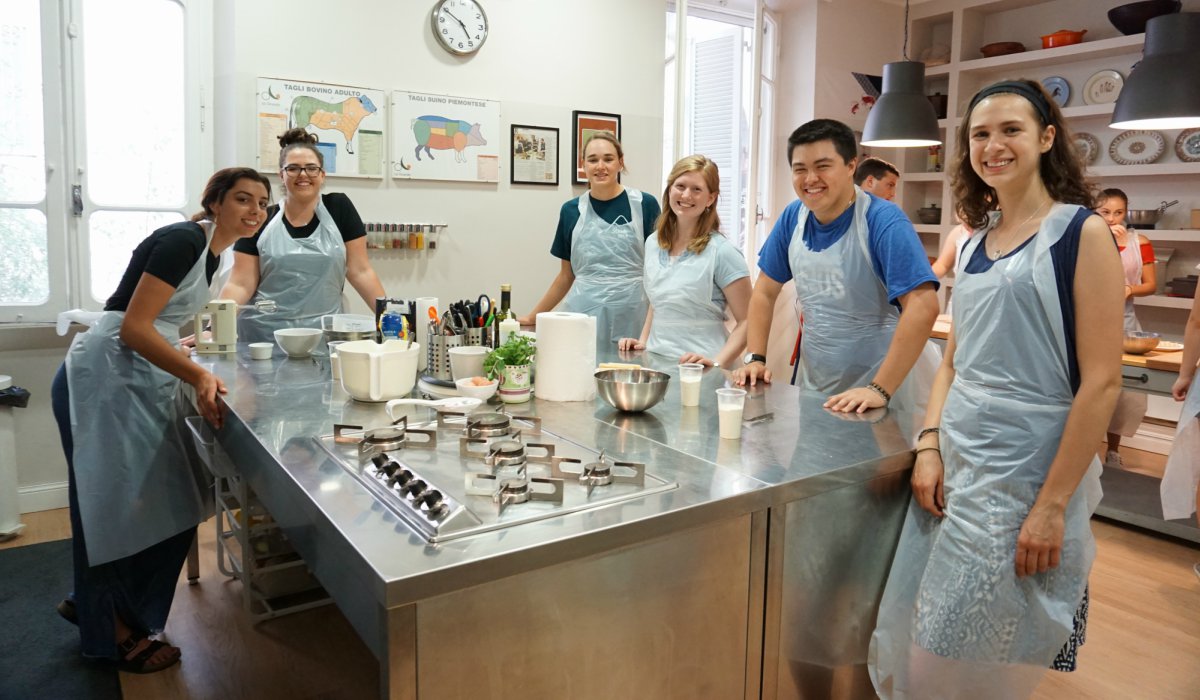Students in Rome come to know the contemporary Roman culture. Optional program activities expose students to the rich culinary traditions of Rome and the rest of Italy, like pasta and pizza-making classes. The Center organizes Olive oil tastings, Social media Management workshops, and other activities. Every student is required to take an Italian language course or demonstrate fluency in Italian so that they can better engage in the local community. Students also have the opportunity to deepen their cultural engagement in many ways.
- Students can volunteer their time with a community service organization. Catholic has developed possibilities where students can contribute a couple of hours a week and provide much-needed help to these agencies and the underprivileged communities of Rome.
- Students will be able to participate in internships with Church and secular organizations in Rome.
- Graduate students will have the opportunity to participate in classes or do research at one of the many Roman Pontifical Universities or at one of the public Italian universities.
Strategies for Success
Living in Rome may introduce the student to new attitudes, new ways of living, and new ideas. To make the most of the experience, students should make every effort to embrace Italian culture and try to do as the Romans do.
General principles
- be open
- be flexible
- explore
- adjust to local time schedules and habits
- above all see difficulties as adventures
Concrete suggestions
- Disconnect. The more students can spend their time in Rome doing Italian things and the less trying to do American things, the better their time will be. They should speak Italian as much as possible, avoid imports from home, limit their communication with friends and family back home, and drastically cut down on their social media presence during their time in Rome.
- Reflect. Students will encounter many new things, and their expectations will be put to the test. Students should set aside time to reflect on what they are experiencing and learn from these encounters.
- Develop one's spirit. Ponder things, seek out the mystical, develop the habit of silence, and simplify life.
- Reflect on the future. A semester abroad is a unique time in life. Their normal outlook will be challenged, and they will be presented with new values and perspectives. Students should advantage of this by using this time to reflect on their future goals and career aspirations. Those who have a clear idea of a career should take the time to make contacts, and talk to people in these fields in the city.
- Engage in the Church in Rome. The majesty of the Christian presence in Rome can enrich anyone, even those who are not particularly religious, not Catholic, or not Christian. Churches contain not only the spirituality of the Catholic Church but also the legacy of centuries of a common Christianity. They also contain invaluable works of art and cultural monuments that span two millennia. Students who are Catholic should take time to participate in local Church events; students who are not Catholic or not Christian should visit these churches to learn about them.
- Be challenged. Try new things, and learn from difficulties.
- Develop the senses. Observe, admire, and apply studies to everything experienced. Seek out beauty every day.
- Spend time in Rome. Get out into the city at every opportunity; study in historic places; get lost, but always bring a map.
- Transcend the tourist. Put away the camera and look with the eyes; experience life rather than report on it; don't think in terms of "attractions" and go to places multiple times; seek out the unusual.
- Stay healthy. It is important to develop behaviors that maintain health during the semester. For example, (a) start and end the day with some stretching exercises, (b) drink a lot of water, (c) walk as much as possible, (d) eat like Italians, with no between-meal snacks, no junk food, (e) avoid hard liquor and drink moderately, and, above all, (f) get enough sleep.
- Budget wisely. When planning expenses, be sure to set aside money for museum visits, cultural events, and the occasional nice meal.

